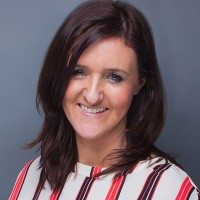
The alignment of regulation for first and second charge markets will deliver huge opportunities and innovation to the market allowing advisers to provide better customer outcomes.
Intermediaries should seriously consider including second charges within their scope of service ahead of the regulatory changes. Whether intermediaries are looking to advise themselves or outsource the advice process, they will need to choose a master broker partner carefully. Here are some important considerations for choosing a master broker.
Independence
There is lots of debate around the importance of retaining independent status. For some firms it is a prerequisite if the term independence is included within the name of the firm. Therefore it is essential that your master broker partner can access a sufficiently broad range of second charge products to enable firms to describe their services as independent.
If your master broker only operates with a limited lending panel this could restrict firms from acting as independent mortgage advisers – request confirmation and evidence that they have sufficient lenders to facilitate this. Draw up agreements to obligate the master broker firm to notify you immediately of any changes to their lending panel.
Compliance and governance
You need to know your master broker has all the necessary systems, controls and governance oversight within their business to be able to meet and exceed the new regulatory challenges. What experience do they have of trading in a regulated environment? Ask for details of their compliance infrastructure, sales processes and establish if compliance is outsourced or if they benefit from dedicated and experienced compliance resource.
Intermediary specialist or dabbler?
What is the business model of the master broker firm you are using? What is their business split between broker and consumer business? If the answer is the majority of business is derived from direct to consumer distribution channels you may find that the processes adapted to that business are not designed with intermediaries in mind – a mass market model approach may not fit the needs of either yours or your client’s needs.
Strict no cross sell
Concerns have been highlighted recently around fears of cross-selling by master broker firms – again it is all about understanding the business model of your master broker partner. If their loyalty is to the intermediary market you should have no issue in building no cross-sell policies into contracts – these firms are likely to be second charge specialists and it is highly unlikely that they will sell mortgages or any ancillary products associated with mortgage products such as life insurance.
Customer journey
How will they deal with your client? Is it underwritten by experienced specialist underwriters? Many borrowing scenarios are complex and often better products are secured through referring clients cases to lending partners even when the may fall outside of standard lending terms. Sourcing systems cannot offer this type of individual attention.
It is clear that mortgage intermediary firms have differing appetites as to how they incorporate seconds within their sales process, which is why separate advised and non-advised models have been developed to address the needs of broker partners. Ultimately by retaining the option to continue to give your clients access to an extensive range of specialist lending options, it will be hugely beneficial to those borrowers who would have previously been offered a narrower selection of products to meet their financial needs.
















